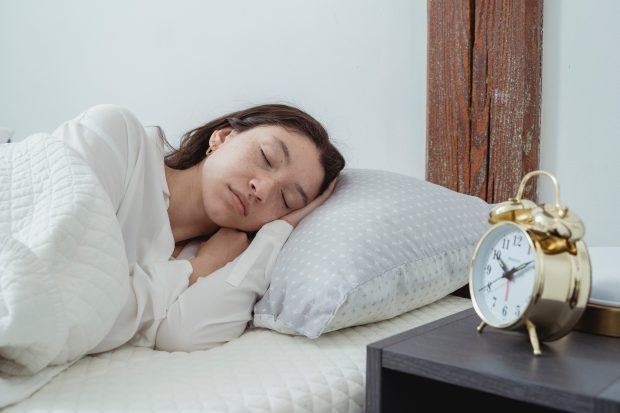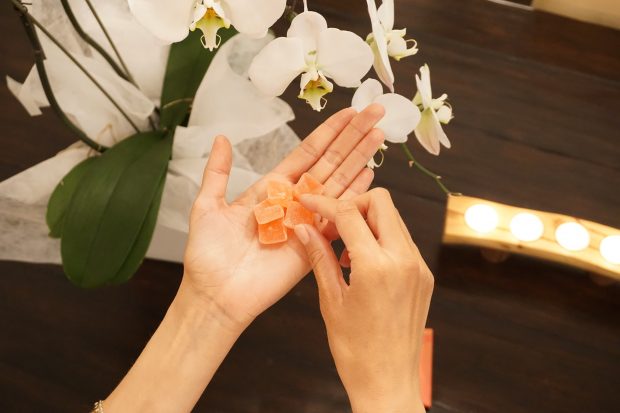One of the simplest ways to keep up with your health is to keep up with your sleep. From a young age, we’ve all been taught that it’s important to get our eight hours a night. But as you get older and the responsibilities pile up, getting those eight hours can be much easier said than done. Finding a supplement to help you out, though, is not quite as difficult.
When it comes to sleeping, nature is your best friend. There are numerous herbs, minerals, plants, and oils that studies show can help you out when it’s time for your head to hit the pillow. But one common natural sleep aid falls into a different category than the rest: melatonin. So what makes melatonin different? Where does it come from, and what are its effects?
Read on to find out everything you need to know about the difference between sleep gummies with and without melatonin, so you can choose the right natural sleep supplement to help you relax at night. Longevity Live Paid Content.
What is Melatonin?
Above, we noted that herbs, minerals, plants, and oils are common natural supplements that people use for relaxation and sleep. Melatonin, on the other hand, doesn’t fall into any of those categories. Instead, melatonin is a hormone that our bodies already produce on their own. It falls in line with your circadian rhythm, meaning it helps our bodies stay on a schedule of regular sleep and waking hours that align with night and day. So in the evening, a couple of hours before you typically go to sleep, your body’s melatonin levels will begin to rise. During the day, when the sun is up, they remain low.
Melatonin doesn’t necessarily make you drowsy or make you fall asleep, though. Once your melatonin levels rise, it helps your body become relaxed, aiding you as your body and mind enter a more sleep-friendly state. If you’ve taken melatonin and later found yourself easily dozing off or struggling to keep your eyes open (hopefully when you’re trying to go to bed), it’s important to note that melatonin wasn’t the cause of your tiredness. It just helped you get there.
Why Take Melatonin?
As a human that produces melatonin in your body already, you might be wondering why you’d ever want or need to take it as a supplement for sleep. The answer is that, as you may already recognize if you’re reading this article, melatonin on its own isn’t always going to get you to sleep as soon as your head hits the pillow each night. Taking a melatonin supplement is like giving your body a hand in its melatonin production. Maybe your circadian rhythm is off, and you simply don’t get tired at night, or you’re jet-lagged, or you suffer from insomnia; regardless of the cause, sometimes your body needs a little hand in its melatonin production and circadian rhythm regulation. By helping it out with a small dose of supplemental melatonin, you can tell your body that it’s time to relax, and thus help yourself better prepare to welcome sleep when it comes.
Sleep Gummies Without Melatonin

Photo by Miriam Alonso: Pexels
As we mentioned above, melatonin is just one natural sleep aid of many. If you’re not liking the sound of taking melatonin as a dietary supplement, there are numerous other supplements that may help you get your eight hours.
When it comes to sleep gummies without melatonin, you’re typically looking at some sort of blend of herbs and minerals and extracts and other natural ingredients that all work together to help you relax and potentially promote drowsiness. Listed below are a few ingredients often found in natural sleep gummies without melatonin.
- Chamomile. Commonly found in the form of tea (as well as in natural sleep aids), chamomile is a herb that has mild sedative effects, helping to bring on sleepiness.
- Passionflower. Most effective in the form of passionflower extract or tea, this herb has calming effects and is taken by many to combat insomnia.
- L-Tryptophan. Thanks to its role in synthesizing serotonin, some studies suggest L-Tryptophan can help improve one’s ability to fall asleep and stay asleep.
- Lavender. Much like the other herbs above, lavender is known as a soothing agent; its scent helps promote calmness and can help one combat stress.
- Valerian Root. This root is recognizable by its scent, but unlike lavender, it’s not necessarily an appealing one. However, valerian root is one of the most common natural sleep aids and is said to improve sleep quality and duration.
Sleep Gummies With & Without Melatonin: What’s the Difference?

Photo by Elsa Olofsson on Unsplash
There are two main differences between sleep gummies with and without melatonin. The first is that a melatonin-only gummy is more to aid one’s circadian rhythm and development of a consistent sleep schedule; it’s not just a one-time answer to make you drowsy. The second is just that: a melatonin-only gummy isn’t going to make you drowsy, regardless of what some may claim. It will only make you relaxed and help you enter a more sleep-friendly state. On the other hand, sleep gummies without melatonin may make you drowsy or sleepy and have more effects than just relaxation.
Conclusion
At the end of the day, it’s best to consult a medical professional to decide which natural sleep supplement might be best for you. Your schedule, external stressors, mental health, and other conditions all play a part in which supplements you might select. But if you’re still unsure whether you want to include melatonin, we have some good news for you: there are numerous natural sleep aids out there that contain the common herbal ingredients and melatonin. It’s the best of both worlds.



![women [longevity live]](https://longevitylive.com/wp-content/uploads/2020/01/photo-of-women-walking-down-the-street-1116984-100x100.jpg)










